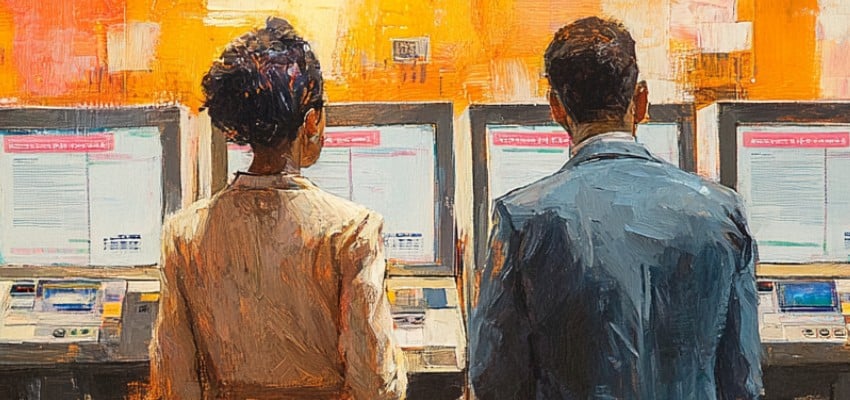Editor’s Note: In light of the to-be-confirmed 2024 presidential election outcome favoring former President Donald Trump, this article examines the critical role of artificial intelligence in modern electoral processes. The piece explores how AI technologies, particularly deepfakes, can shape voter perceptions and influence democratic outcomes, posing both opportunities for innovation and risks to electoral integrity. As electoral bodies across the U.S. increasingly integrate AI tools, they face the challenge of balancing the potential benefits of these technologies with the imperative to safeguard public trust.
Content Assessment: After Trump’s Win: AI’s Role and Risks in Election Integrity
Information - 92%
Insight - 90%
Relevance - 92%
Objectivity - 90%
Authority - 91%
91%
Excellent
A short percentage-based assessment of the qualitative benefit expressed as a percentage of positive reception of the recent article from ComplexDiscovery OÜ titled, "After Trump’s Win: AI’s Role and Risks in Election Integrity."
Industry News – Artificial Intelligence Beat
After Trump’s Win: AI’s Role and Risks in Election Integrity
ComplexDiscovery Staff
With the 2024 election results suggesting a Trump victory, concerns surrounding AI’s role in electoral processes have intensified. This analysis explores the intersection of AI technologies with democratic practices, particularly emphasizing the potential threats and opportunities AI presents to electoral integrity and security.
The Double-Edged Sword of AI in Elections
The rapid expansion of artificial intelligence in electoral processes is reshaping campaign strategies in the U.S., particularly through tools like deepfake audio and video. While AI democratizes access to campaign resources, it simultaneously introduces serious ethical and security challenges. Recent incidents illustrate AI’s impact on voter perception. In New Hampshire, an AI-generated robocall mimicking President Biden’s voice circulated, urging Democratic voters to abstain from primaries. This example, along with others, underscores the need for regulatory frameworks. Colorado Secretary of State Jena Griswold noted, “We’ve already seen examples of audio deepfakes. It’s not something that is this imaginary technology. It’s here.” This statement reinforces the urgency of addressing the potential risks associated with AI-driven media manipulation.
Complexities in Verifying AI-Generated Content
AI’s capacity to simulate voices complicates verification processes, challenging voters to distinguish authentic from AI-generated content. Amy Cohen, Executive Director of the National Association of State Election Directors, emphasizes this difficulty: “Even without AI, every election official spends hours chasing their tails because of robocalls.” The sophistication of deepfake technology compounds these challenges, prompting electoral bodies to implement preemptive measures, such as unique code words among officials and training scenarios to counter AI-driven misinformation.
Ethical Implications and Equity in AI-Driven Campaigning
Beyond security, AI in politics raises ethical questions about fairness in elections. Political attorney Andrew Cates, who has testified on AI’s influence, suggests that AI can promote fairness by enabling smaller campaigns to access advanced data analysis and voter outreach tools. However, he also highlights the risk of voter deception, as illustrated by the AI-generated Biden robocall. Ensuring that AI is used responsibly and equitably remains paramount to safeguarding electoral fairness.
Strategic Oversight by States
In response to these AI challenges, states have adopted varied approaches to mitigate AI’s impact. Minnesota’s Secretary of State Steve Simon has mobilized local leaders to counteract misinformation, while Maine employs physical signs to communicate verified information directly to voters. These tactics aim to counteract the spread of AI-generated misinformation, emphasizing the importance of accessible and credible information in maintaining election integrity.
The broader movement toward regulatory frameworks at the federal level aims to provide consistent guidelines on responsible AI use in election processes. Balancing innovation with security is critical, as state-specific strategies reflect unique electoral contexts, yet point to the overarching need for standardized oversight.
A Collaborative Effort to Safeguard Electoral Integrity
As AI technologies advance, collaboration between election officials, tech experts, and policymakers is essential to manage security and ethical considerations in AI-driven campaigns. Amy Cohen highlights the challenge succinctly, stating, “The issue with AI technology is that we literally need to train ourselves to not believe our eyes and ears.” This call for informed skepticism underscores a necessary shift in public perception and election oversight.
Moving Forward: Fairness and Transparency in AI-Driven Campaigns
With the 2024 election now almost behind us, the focus on AI’s influence in electoral outcomes becomes even more relevant, underscoring the need for robust regulatory oversight. The dynamic between AI technology and electoral processes requires constant vigilance to prevent emerging threats. As AI-enhanced electoral practices evolve, ensuring the responsible use of these technologies remains crucial to protect democracy’s core values of fairness and transparency.
News Sources
- Pastors and Secret Codes: US Election Officials Wage Low-Tech Battle Against AI Robocalls
- From data analysis to deceptive calls: The dual use of AI in elections
- AI’s Underwhelming Impact On the 2024 Elections
- Are Deepfakes of Elected Officials and Candidates Legal in Texas?
Assisted by GAI and LLM Technologies
Additional Reading
- AI Regulation and National Security: Implications for Corporate Compliance
- California Takes the Lead in AI Regulation with New Transparency and Accountability Laws
Source: ComplexDiscovery OÜ



























